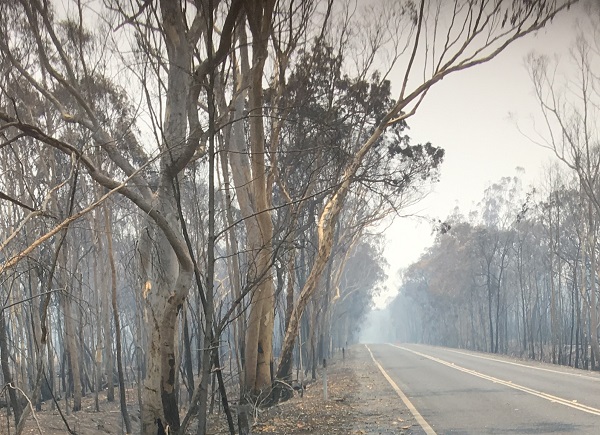Blog
Contact media@wires.org.au for enquiries or call 0416 272 153.
For the latest updates on bushfire recovery projects and emergency response
Read WIRES Emergency Recovery Plan and WIRES National Emergency Response Plan
Unrelenting Fire Emergency

Over 2 million hectares of land have been burnt, dozens of fires are still burning and we are now bracing for heatwave conditions with temperatures of over 40 degrees forecast.
Distressingly there is little relief in sight as the Bureau of Meterology (BOM) are predicting a difficult summer with ongoing fire threats and extended drought conditions likely, due to expected drier than average conditions, below average rainfall and higher than average temperatures.
WIRES have been rescuring and caring for wildlife for over 30 years and never before have we experienced emergency conditions like these. With the unprecented quality, size and scope of these fires, the loss of wildlife is heartbreaking.
With estimates that over 2,000 koalas are likely to have died in the north coast alone, conservatively the losses of all native animals would be in the tens of thousands. Surviving animals will also face significant challenges caused by food and water shortages and lack of habitat, for an extended time.
On Friday several blazes combined north of Sydney to create a megafire with a 60 kilometre long fire front stretching all the way to Singleton. Fires are this are being described as too big to put out and the RFS are indicating that they will burn for weeks.
Although our volunteers cannot access fire areas until they have been declared safe, our volunteers are doing everything they can to assist all sick, injured and orphaned native animals being reported as quickly as possible.
In just the first 8 days of December WIRES 1300 line received over 5,800 calls and WIRES attended over 880 rescues.
To help wildlife in need:
- Call WIRES Rescue Line on 1300 094 737 for help with individual animals in distress
- Take any injured animals immediately to the nearest vet if it is safe to do so. Injured animals need vet treatment urgently, to increase their chances of recovery and survival. If you let WIRES know which vet you've taken the animal to, we will follow up with the vet to bring the animals into care after they have been assessed and received any treatment required.
- Leave out water for wildlife and read WIRES Bushfire Factsheet.
- Consider becoming a volunteer if you are interested in personally rescuing and caring for wildlife long-term.
- Donate to WIRES Emergency Fund and share the link with others. Emergency funds are the best way to enable us to quickly respond to the specific needs of different animals across all regions. All gifts $2 and over are tax-deductible.
Please make sure you have all the information you will need to keep safe.
Search
Newsletter
Stay in touch and get our regular rescue stories, WIRES updates and a free copy of our 15 Ways to Help Wildlife ebook
Recent Posts
- Emergency Response Training for Wildlife Volunteers
- WIRES Introduces New Wildlife Rehabilitation Governance Courses in Collaboration with NPWS
- Community Support for Post-Bushfire Recovery of Wildlife in the Greater Blue Mountains
- Research Grants Program-2023 Recipients Announced
- National Koala Conference
- Nature Conservation Council's Bushfire Conference
- Support Stronger Nature Laws
- Helping Endangered Cockatoos: WIRES Grant Success Story
- Landmark Conservation Project Ensures The Future of The Northern Bettong
- Wildlife Road Collisions Unveiled
